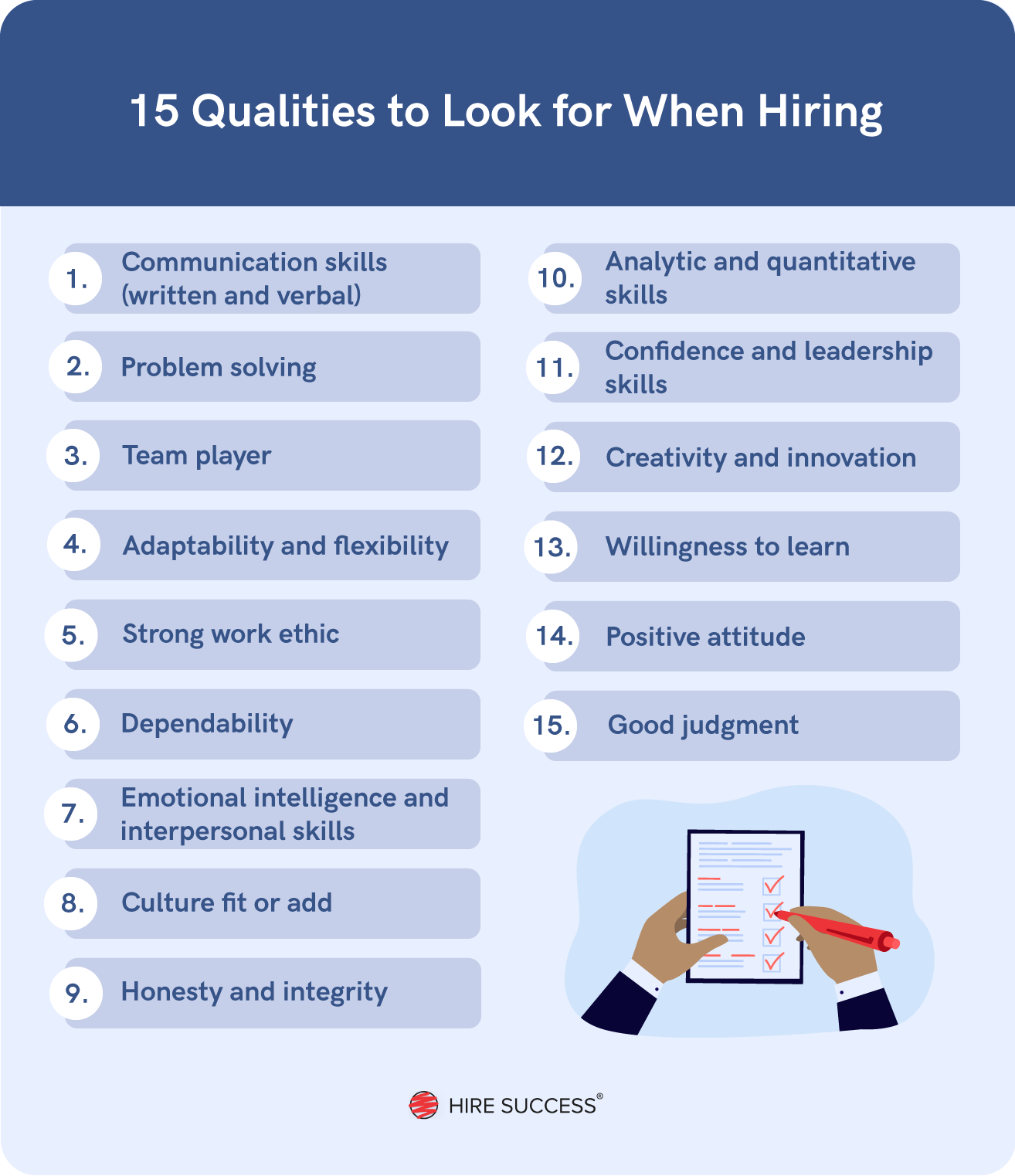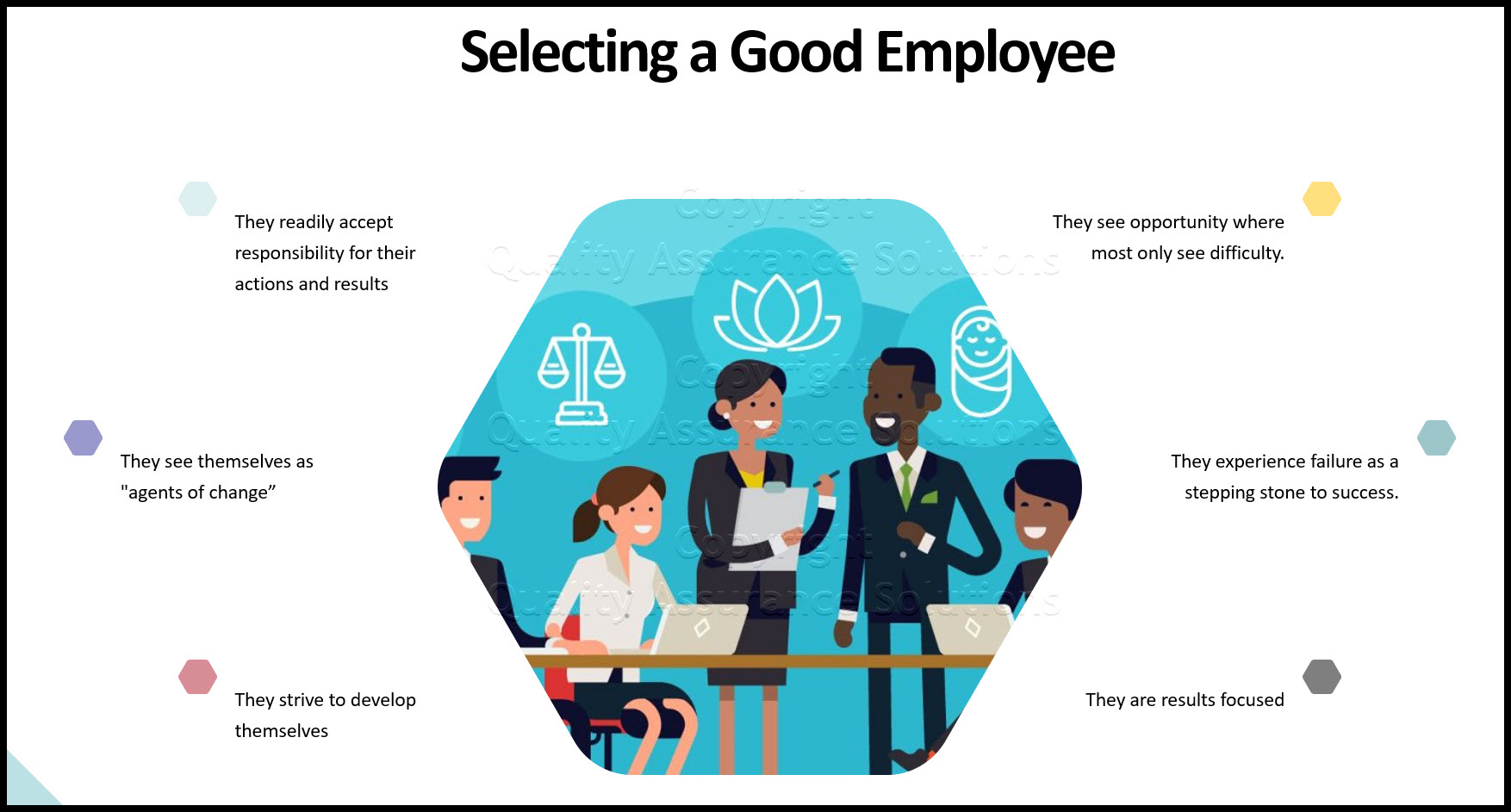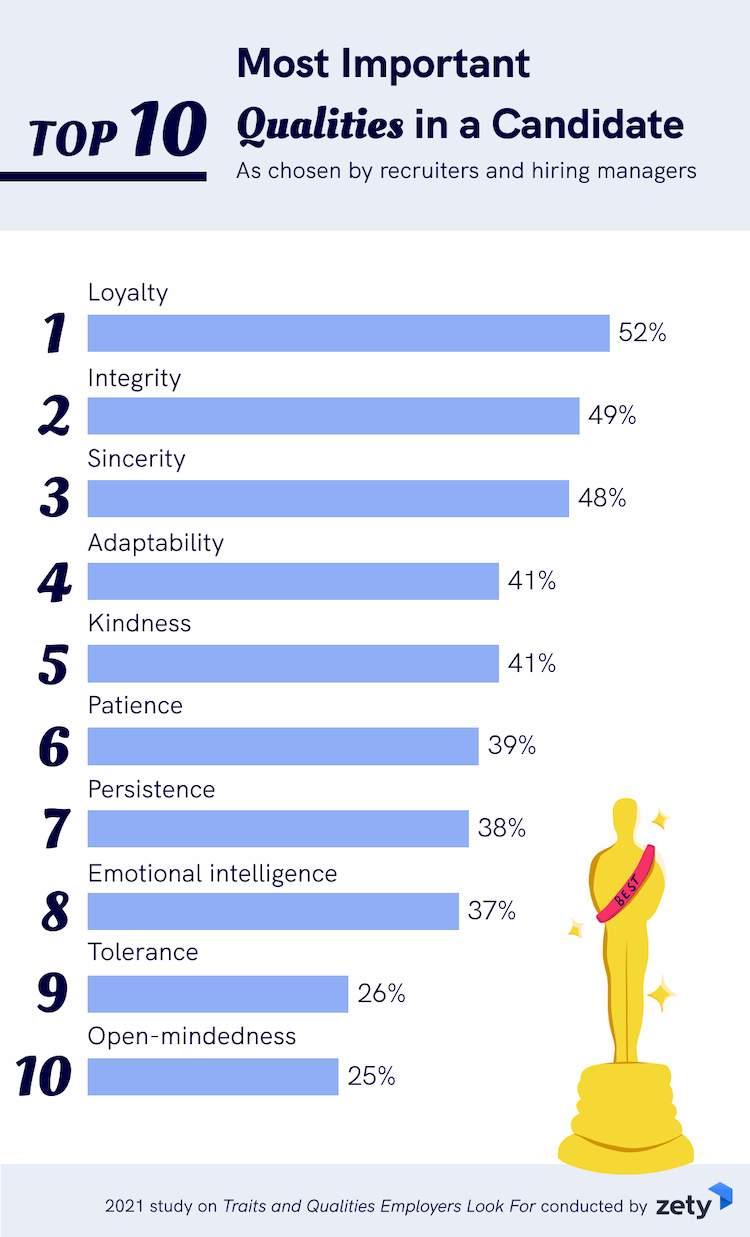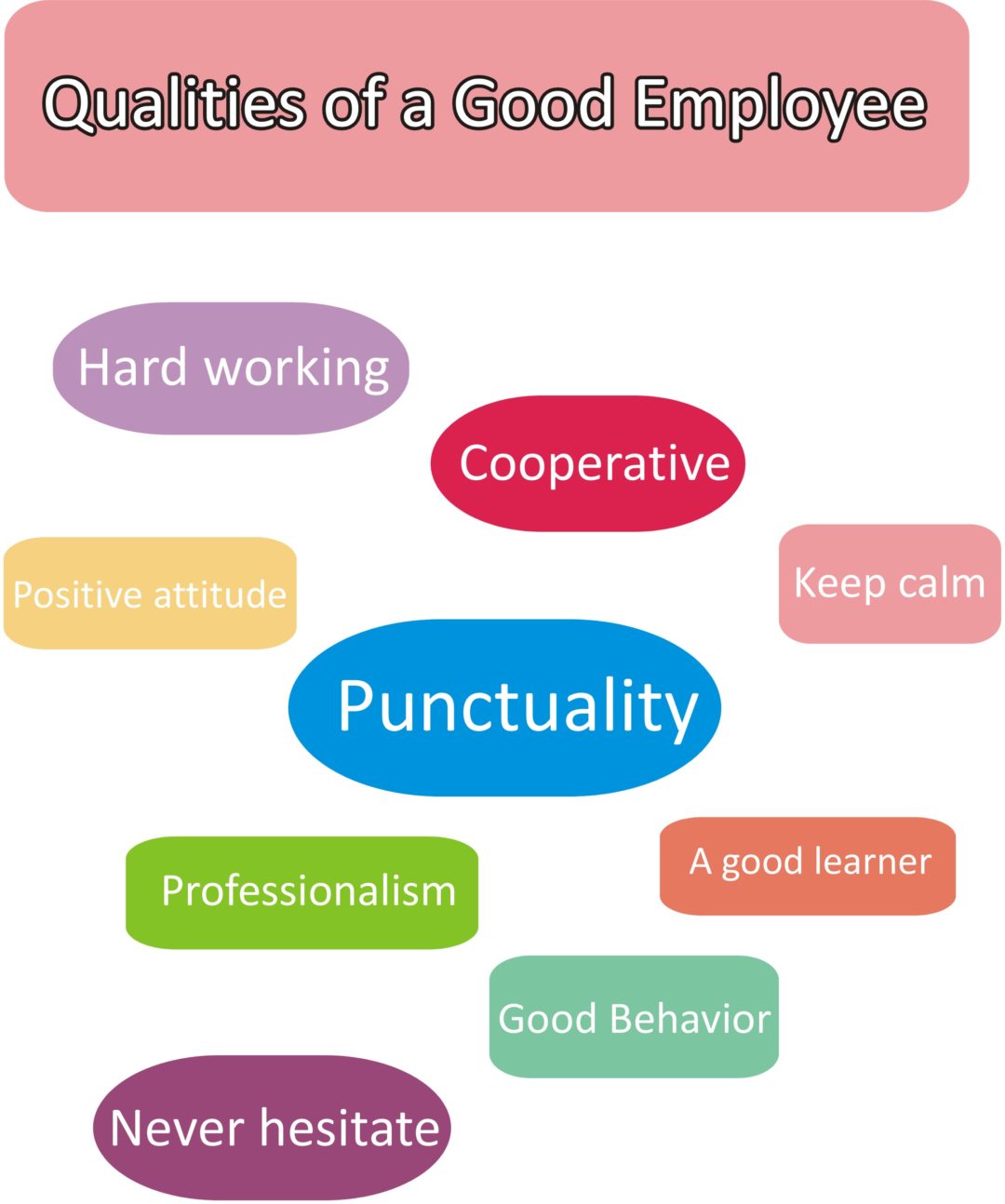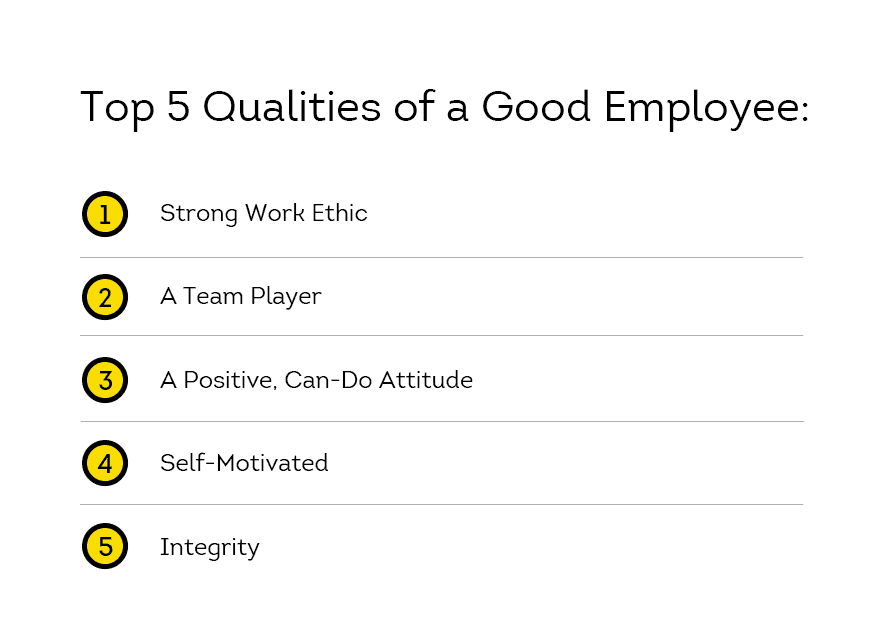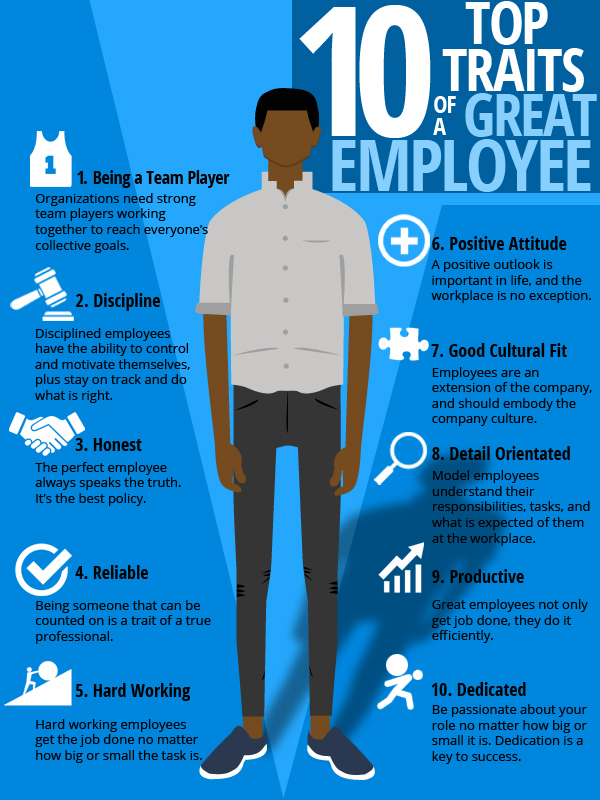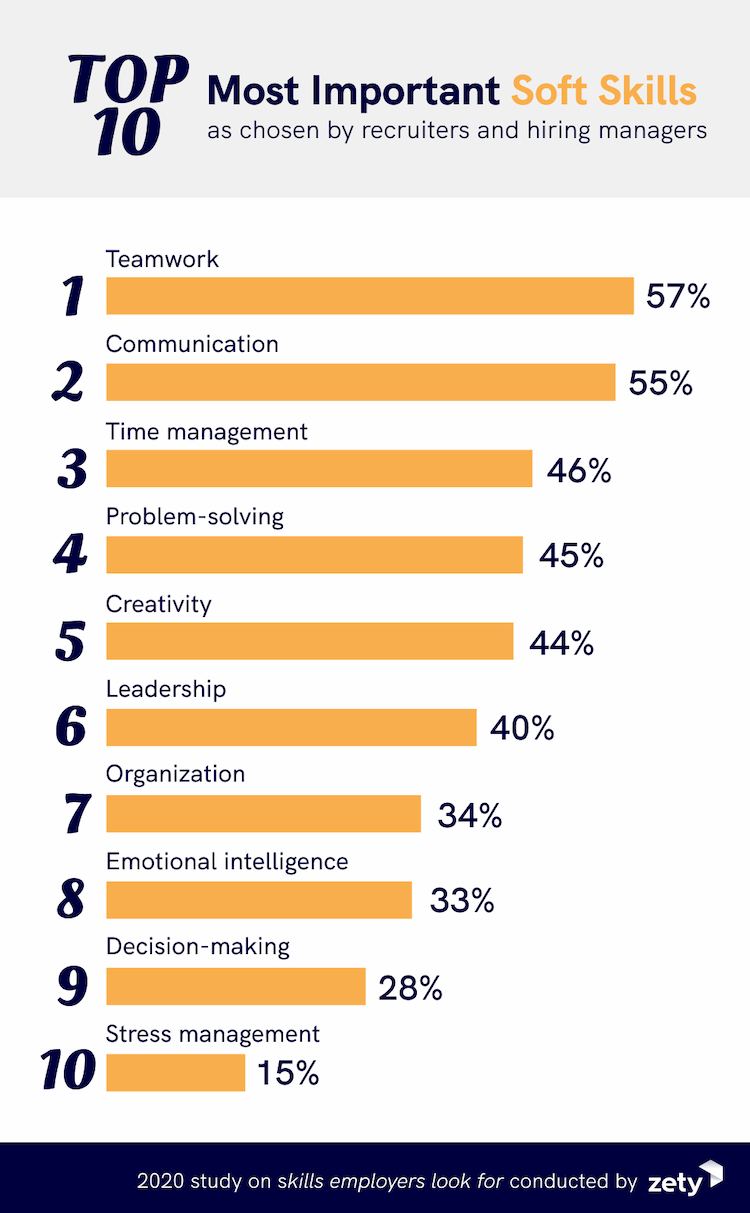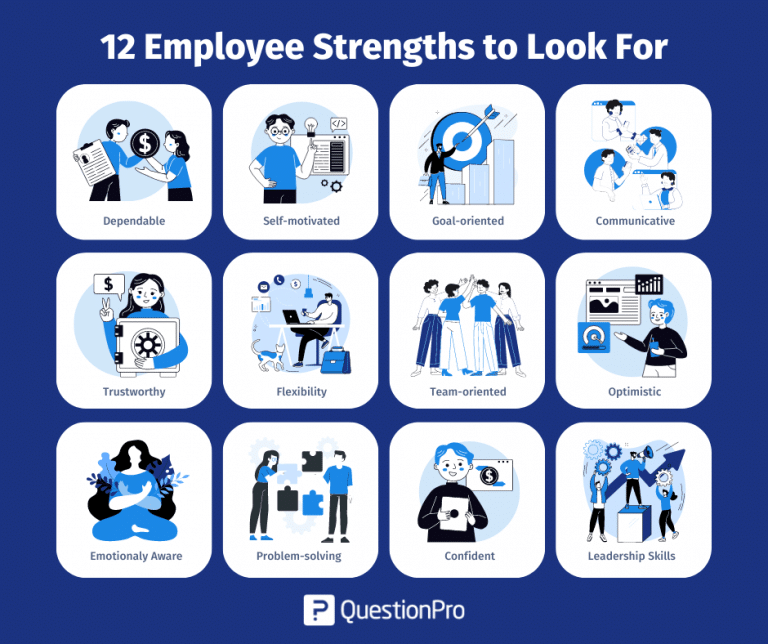What To Look For In A Good Employee

In today's competitive job market, finding the right employees is crucial for organizational success. Beyond technical skills, employers are increasingly prioritizing a range of soft skills and personal attributes. Understanding these key characteristics is essential for effective hiring and building a strong, productive workforce.
This article delves into the qualities that define a good employee, exploring the attributes employers seek, how these attributes translate into workplace success, and the implications for both job seekers and businesses. Identifying these traits is more important than ever, as companies strive to navigate evolving industry landscapes and technological advancements. The information is gleaned from industry reports, expert opinions, and analysis of successful workplace dynamics.
Key Attributes of a Good Employee
Employers consistently cite strong communication skills as a top priority. This includes both written and verbal communication, as well as active listening. Effective communication fosters collaboration, prevents misunderstandings, and ensures that tasks are completed efficiently.
Problem-solving abilities are also highly valued. Employees who can identify issues, analyze potential solutions, and implement effective strategies are invaluable assets. A proactive approach to problem-solving can prevent small issues from escalating into larger, more costly problems.
Adaptability and a willingness to learn are crucial in today's rapidly changing work environment. Employees who embrace new technologies, processes, and ideas are better equipped to contribute to innovation and growth. A growth mindset is a significant advantage.
Teamwork and collaboration are essential in most modern workplaces. Employees who can work effectively with others, share ideas, and contribute to a positive team environment are highly sought after. Collaboration leads to increased productivity and innovation.
Integrity and a strong work ethic are fundamental qualities. Employers seek individuals who are honest, reliable, and committed to doing their best work. This includes punctuality, responsibility, and a dedication to meeting deadlines.
Time management and organizational skills are crucial for productivity. Employees who can prioritize tasks, manage their time effectively, and stay organized are more likely to meet deadlines and achieve their goals. This contributes to overall efficiency and reduces stress.
The Impact of Good Employees
Hiring good employees has a significant impact on a company's bottom line. Increased productivity, reduced turnover, and improved customer satisfaction are just some of the benefits. Investing in the right people pays dividends in the long run.
A positive and productive work environment is fostered by good employees. They contribute to a culture of collaboration, innovation, and mutual respect. This creates a more enjoyable and rewarding workplace for everyone.
Good employees often act as brand ambassadors for their company. Their positive attitude and commitment to quality reflect well on the organization. This can attract new customers and improve the company's reputation.
Challenges in Identifying Top Talent
Identifying these qualities during the hiring process can be challenging. Traditional resumes and interviews may not always provide a complete picture of a candidate's potential. Employers are increasingly using behavioral interview questions and skills-based assessments to gain a better understanding of candidates' abilities.
Background checks and reference checks are also important tools for verifying a candidate's credentials and past performance. These checks can help employers identify potential red flags and make more informed hiring decisions.
Many companies are also focusing on cultural fit. They want to hire employees who share their values and align with their organizational culture. This can lead to increased employee engagement and retention.
The Perspective of Job Seekers
For job seekers, understanding what employers are looking for is essential for success. Highlighting these key attributes in their resume and during interviews can significantly increase their chances of landing a job. Focus on providing concrete examples of how you've demonstrated these qualities in past roles.
Demonstrating a willingness to learn and adapt is also crucial. Emphasize your ability to embrace new challenges and contribute to innovation. Show enthusiasm for professional development and a commitment to staying current in your field.
Networking and building relationships with professionals in your industry can also be beneficial. Networking provides opportunities to learn about job openings and gain insights into what employers are looking for. Attend industry events, join professional organizations, and connect with people on social media.
Conclusion
Identifying and hiring good employees is essential for organizational success. By prioritizing key attributes such as strong communication skills, problem-solving abilities, adaptability, teamwork, integrity, and time management, employers can build a strong, productive workforce. The future of work depends on adaptable and skilled employees.
For job seekers, understanding these qualities and demonstrating them during the hiring process is crucial for landing a job. By focusing on developing these skills and highlighting them in their resume and interviews, job seekers can increase their chances of success. The competition to find the right employees is intensifying, so strategic hiring practices are vital.
Ultimately, a strong workforce built on these key attributes drives innovation, productivity, and success for both individuals and organizations. Continuously evaluating hiring strategies and adjusting them to the changing needs of the industry will be crucial in the years to come.
